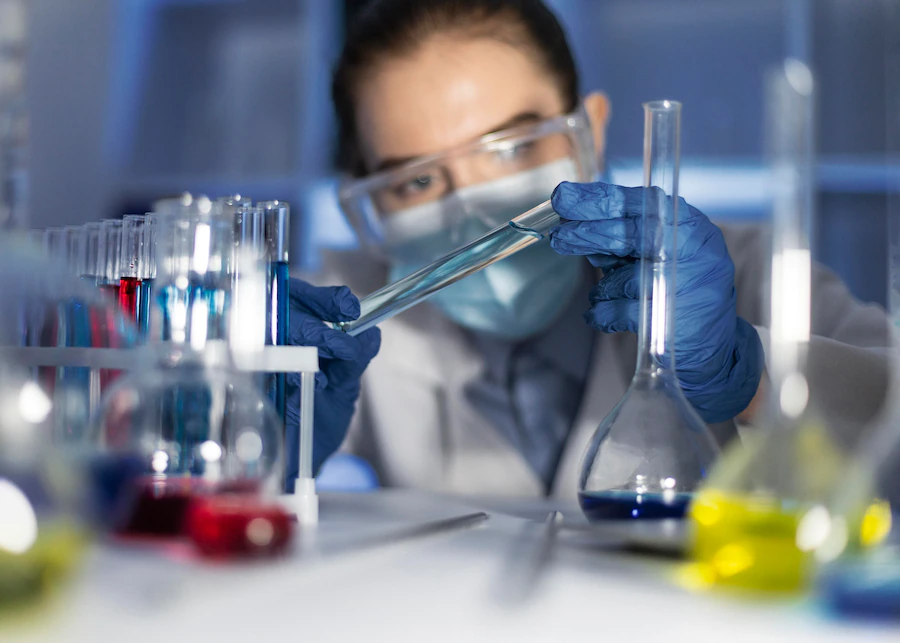Chemical Engineering: Epitome of successful choice & life

What is Chemical engineering?
Chemical engineering is about the production and manufacturing of products by
chemical processes. This includes designing systems, equipment, and processes for
raw materials and for compounding, mixing, and processing chemicals. Chemical
engineers analyze the process and translate processes developed in the laboratories
into practical applications for large-scale commercial production of products and
then work to maintain and improve those processes. It depends on 80% of Mathematics
and Physics.
What is the difference between Chemical engineering and Chemistry?
The big difference between chemical engineering and chemistry has to do with
originality and Scalability. Chemistry is related to the development of novel
materials and processes, while chemical engineering is related to materials and
processes and makes it on a larger scale or in a more efficient way with economical
optimization.
Chemists’ job is related to lab analysis like the development of new materials and
processes development of computer models and simulations on the other hand. chemical engineers are the kings of industrial processes and plants, designing of equipment,
piping and instrument diagrams, process flow diagram, piping service index, process
data sheets, instrument data sheets, process control philosophy, process design
basis, utility consumption, HAZID & HAZOP study, cost optimization, etc.
What do Chemical engineers do?
chemical engineers conceive, optimize and design processes involved in the chemical
manufacturing of products. Designing and troubleshooting chemical and physical
processes for the production of chemicals, foods, pharmaceuticals, fuels, and
biologicals is the main role of chemical engineers. Large-scale manufacturing plants
most often employ them to maximize productivity and product quality while minimizing
and optimizing costs.
chemical engineers who are working in business and management offices often visit
research, production facilities, and plants. Interaction with many other people and
team collaboration are critical to the success of projects involving chemical engineering.
They work in manufacturing plants, research laboratories, and self-employee or pilot
plant facilities. They work around large scales production equipment that is housed
both indoors and outdoors. They are required to wear personal protective equipment
(e.g., hard hats, goggles, and steel-toe shoes).
Where do Chemical engineers work?
Nowadays, there is a great demand for chemical engineers because of a huge number of
industries that depend on the synthesis and processing of chemical materials.
chemical engineers can pursue their careers in the following industries:
- Petroleum Refineries
- Petrochemical Industries
- Chemical Manufacturing Industries
- Cement Industries
- Aerospace Industries
- Polymer Industries
- Fertilizer Industries
- Chloro-Alkali Industries
- Pharmaceuticals Industries
- Food & Beverages Industries
- Rubber Industries
- Coal & Mining Industries
- Textiles Industries
- Public Sector Unit (PSU)
- Paper and Pulp Industries etc.
Types of Job profiles for Chemical Engineers
Process Engineer – Designing, Developing and Optimizing chemical process Production Engineer – Maintenance and monitoring of plants Quality Manager – Ensure the quality of products Fire & Safety Engineer – Works on Protection against Hazards in Plants, etc.
Why Chemical engineering from ITM Vocational University?
There are many universities which provide Chemical engineering but ITM Vocational University is one of the best places to pursue Chemical engineering and have a great career in the same. ITM Vocational University has the best industry-trained faculties which will always help you with great and practical knowledge.
Need help
choosing a Program?
Talk to us about which program best suits your professional career.
Enquire Now
